Exploring The Theme of Death in Anime
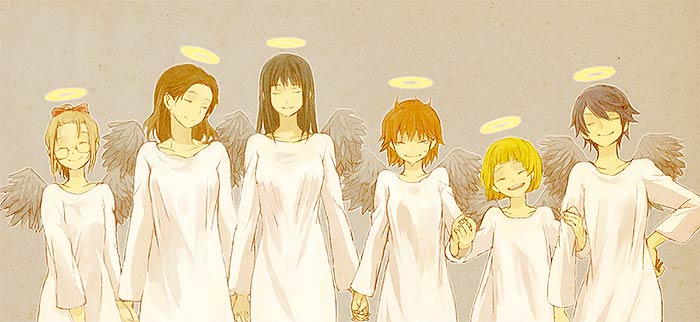
At a certain point in our life, none of us can escape the reality of losing someone dear. We are aware that, sooner or later, everyone is going to depart. That said, humans tend to be forgetful beings, unaware of how vulnerable and frail their life is owing to the existence of death. As such, I have selected three anime series, one manga, and one OVA to explore the thematic dimensions and lessons of death namely Death Parade, Haibane Renmei, Angel Beats, Gantz, and Cat Soup. They will each be approached in separate sections.
The aforementioned anime Haibane Renmei, Death Parade and Angel Beats are significant in terms of dealing with death in its initial process. The characters are not yet reborn to the mortal world or ascended to Heaven. They all find themselves in a purgatory world undergoing a transition between life and the afterlife. In all cases, the assumption of nothingness after death in these anime is rejected. This entails that even though they address a tragic issue, they still aim to convey to the viewer that death is not fully a calamitous event as there is always the hope of rebirth and the chance to atone for one’s sins. By contrast, Gantz rejects the religious approaches of death and Cat Soup does not really give an answer to what exactly happens after death.
Haibane Renmei: Death Is An Atonement for Sins
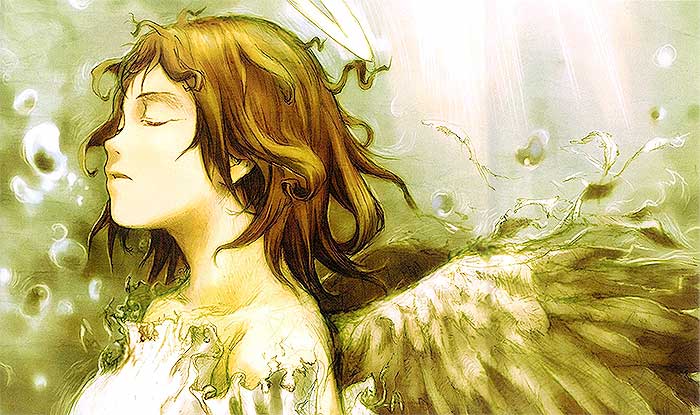
Haibane Renmei was released in 2002 and directed by Tomokazu Tokoro. It depicts death as a continuation of humans’ missions and raison d’être in life and a process to atone for one’s sins. The setting of the story resembles society in that the dead characters, i.e. the Haibane, seem to lead a normal and peaceful everyday life, yet they end up realizing they need to acknowledge the sins they committed during their lifetime, which is why the seemingly peaceful everyday life is nothing but a trap. They actually must work and have rules they need to abide by, otherwise they get punished by the organization that controls their lives, i.e. the Haibane Renmei. The anime suggests that the cycle of life and death is a constant work towards the moral evolution of humans.
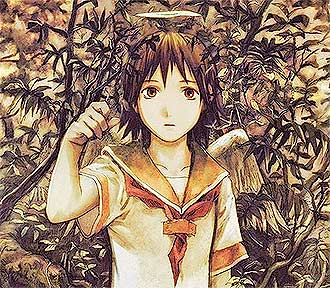
According to religion, humans are sinners and, therefore, they must be conscious of their own wrongdoings. Admitting and embracing this truth is what allows them to overcome their regrets. Haibane Renmei portrays the notion of atonement that is depicted through symbolic incarnations. For example, symbols like the cocoons, the wings, and the city of Glie serve to create a Christian approach to an afterlife as they respectively represent rebirth, purity, and the purgatory. 1 Such concepts are rooted within Christianity, and they signal that death is a door to another world. A world where the “Haibane”, i.e. humans, can redeem before ascending to Heaven.
Other sources interpreted the concepts of rebirth, purity and the purgatory differently to involve psychological connotations based on Freudian analysis; the Ego, the Super-Ego and the Id. The characters stand for the Ego. Their past sins are symbolized by the Id, and the social rules including the morals and values set by the Haibane Renmei are represented by the Super-Ego. 2 Humans are torn between their Id and Super-Ego. They are in a constant battle between their desires and the social norms governing their ego, which leads to the inevitable outcome of committing sins.
However, some are aware of this fact while others do not and the purgatory in Haibane Renmei is an opportunity for them to learn that they can always challenge themselves by questioning their existential nature and working on controlling it. Perhaps the central message of the anime is encapsulated in the statement of the communicator, who confessed to the main character Rakka, “One who recognizes their own sin, has no sin.” It is important to acknowledge one’s sin in order to move on and that is the sense of responsibility that human beings need to earn so as to avoid committing the same errors. Henceforth, atonement requires hard work to somehow pay back the sins that have been committed during one’s lifetime.
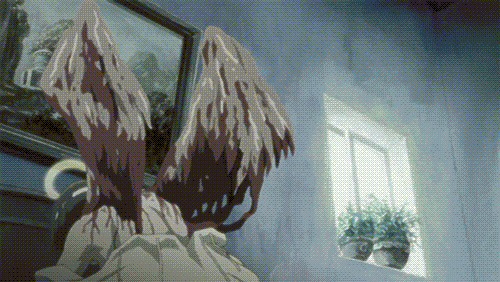
What is also interesting about Haibane Renmei is the portrayal of rebirth as a transition. The picture below shows the process of rebirth after coming out of a cocoon. It is an excruciating experience requiring wings to be thrust out from the back, tearing the skin. This process demonstrates that a transition to a new stage is always painful. It incarnates a shift from life to an afterlife, and even during a lifetime, humans have to undergo changes that are usually difficult to handle. For instance, the transition from childhood to adulthood, which implies developing skills of autonomy and self-awareness, or from being single to getting married and having a family, which suggests even greater responsibilities to handle. Those are changes that compel humans to adapt to new situations and move forward in life.
Death Parade: Death Is Judgment
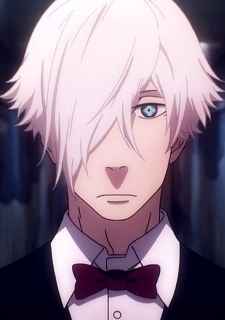
Moving on to Death Parade which was aired in 2015 by the popular studio Madhouse, the characters are already dead and remember nothing of their past lives. They find themselves in an elevator that opens to a bar where a barman named Decim welcomes them for drinks and then invites them to play games. These games are a form of judgment to decide whether the characters’ souls will be reincarnated or punished by transferring them to the void where despair and agony are omnipresent.
During the games, the characters are slowly reminded of their memories incorporating guilt brought about by the sins they have committed. According to Eisenbeis (2015), this leads to an inescapable question which is whether it is right to judge humans at their worst. 3 The anime delves deeper into the characters’ mindset by shedding light on their memories. It indicates that humans are responsible for their sins. Yet, if their behaviors and deeds are restricted by the external and internal conditions of life’s challenges, then it is probably wrong to judge them at their worst. If the nature of suffering compels humans to cause wrongdoings, this probably means that divine judgment can be put into question.
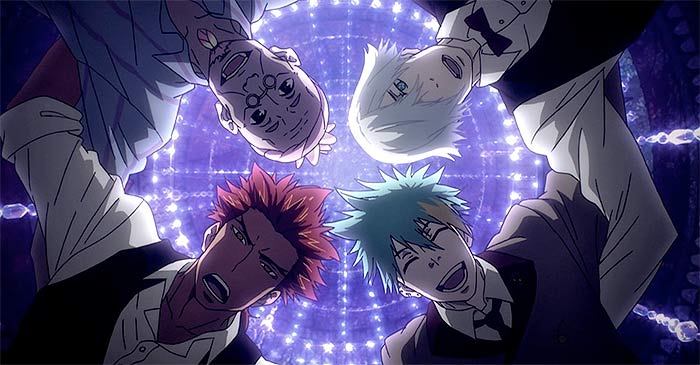
The previously-mentioned idea is contradicted by Decim’s declaration: “there is no one that cannot be judged.” The quote infers that even the highly virtuous must also be judged because that maintains equality and justice. Everyone is capable of making errors in their lives and, thus, they are responsible. We are constantly being tested throughout the course of our lives by undergoing difficult circumstances. It is thanks to the existence of suffering and obstacles that we can label ourselves as virtuous or vicious.
Admitting that we have committed wrongdoings allows us to promote a stronger sense of responsibility that adds to our personal growth. While on the verge of “death,” the detective Tatsumi cried out to proclaim: “It’s only obvious that the world is a cruel place. If you cannot change the world, then you have to change yourself.” This citation predicts one of the central propositions of the show; humans have to make the choice to change themselves otherwise, they won’t be able to properly face the cruel challenges of this world. If humans manage to change themselves, they are, in a way, contributing to changing the world.

Following this line of reasoning, it is a form of acceptance to face reality and admit that we have limits. No matter what, what is done cannot be undone but it certainly can be repented and overcome after receiving the appropriate punishment. Decim stresses on this fact when he claimed: “life is always full of unfairness. That’s something you know all too well, right?” The creator of Death Parade, Yuzuru Tachikawa, portrays the dark reality of human existence. He aims to convey that judgment is hard to deal with because of the complexity of the human psyche. It is often difficult to categorize a person as being inherently good or evil. Despite this existential nature, the fact that we are responsible cannot be excluded. Henceforth, the results of our deeds exhibit how responsible we are and whether we deserve divine punishment or not.
Angel Beats: Death Is Acceptance and Rebirth
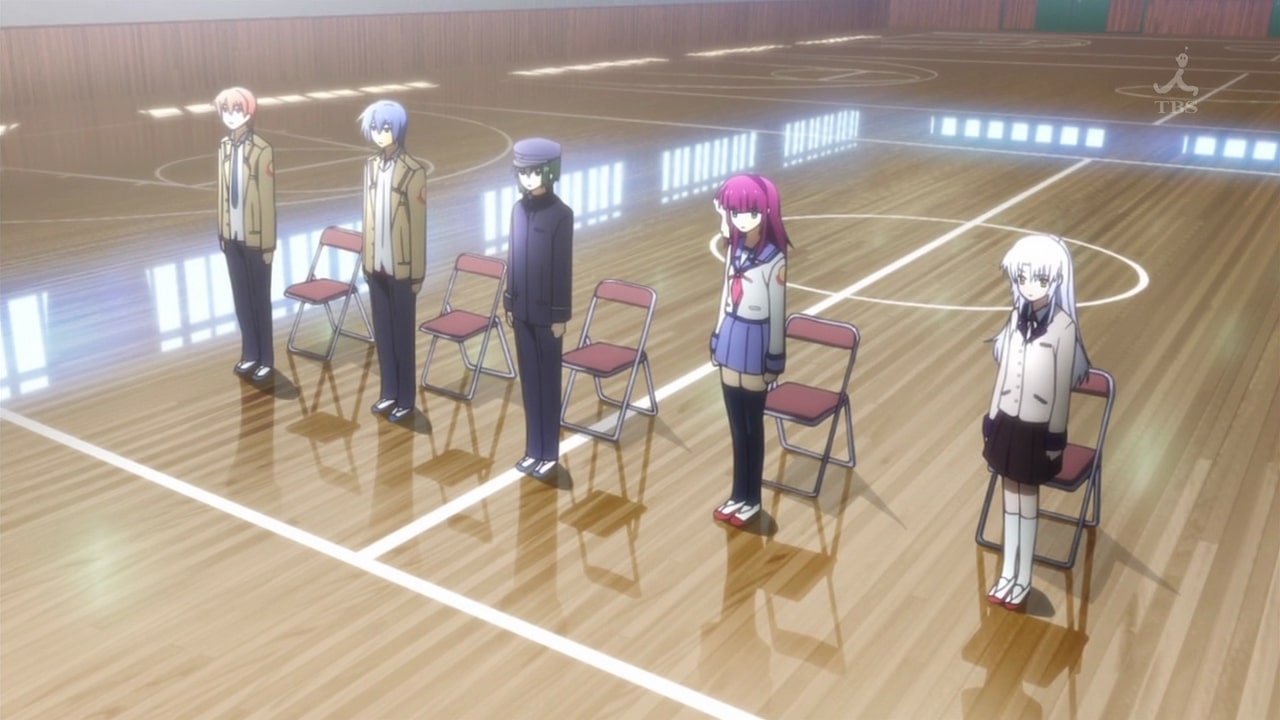
Death in anime does not solely involve atonement and judgement but also incorporates the thematic dimension of acceptance and rebirth which is mainly addressed in the anime Angel Beats. It was aired in 2010 and directed by Seiji Kishi. It is about characters showing up in a purgatory world right after their death. The world appears to be a normal high school, as they are all wearing uniforms and find themselves in a high school establishment. The reason why this is the case is that all the dead characters are still young and did not have the opportunity to graduate when they were alive. Otonashi, the main character, plays the role of the headmaster in the final episode to honor the other students and give them their diplomas. It is a symbolic scene to make everyone experience what a graduation ceremony feels like. That way, they can be at peace with themselves and disappear from the purgatory to be transferred to the mortal world.
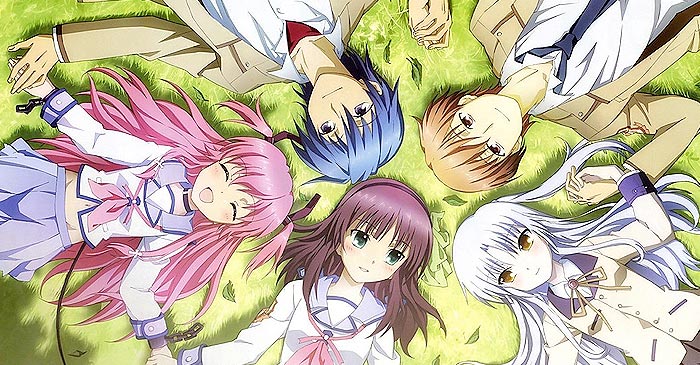
Interestingly, the anime depicts the characters’ quest to find out the meaning of their past life. They also wonder if they could meet the one who created them to understand the mystery of their existence; they, nevertheless, do not manage to do so and end up clueless while merely accepting the lives they were given. Whatever the case, there is no choice but to accept the life one is granted and to figure out its meaning. 4 In this context, Nakamura Yuri stated: “We have no choice but to accept the one and only life we’re given, no matter how cruel and heartless it might be.” We learn from Angel Beats that acceptance is a quintessential stage to move to another level in life or even in an afterlife, which is the same idea outlined in Haibane Renmei.
Although the creator Seiji Kishi seeks to convince his viewers that accepting the grim and inescapable reality of life’s hardships and death is mandatory to move on, he infers that there is a glimpse of hope within this desperate situation. At the very end of the show, Otonashi and Tachibana, who had developed a deep connection in purgatory, reincarnated in the same world, and seem to have another chance to meet in the mortal world as shown in the picture below.
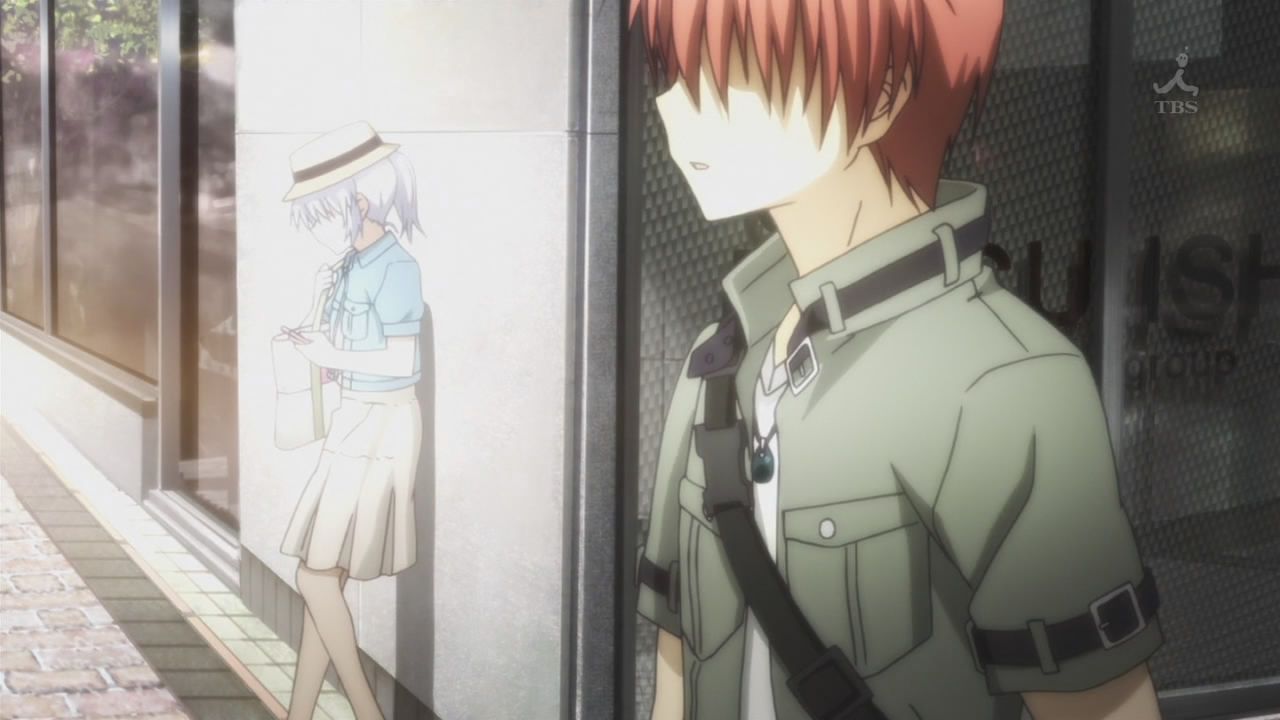
In the same line of thought, as long as one believes that there is always hope in spite of the gruesome and harsh reality, they will presumably be rewarded for the considerable efforts and sacrifice they have been making. This entails that life and death may seem disconnected but there is probably a link between them as one completes the other. It is a cycle that connects life and death through rebirth, allowing humans to develop a deeper sense of wisdom. Unlike Death Parade and Haibane Renmei, Angel Beats does not hinge upon the notion of sin and, instead, sheds light on the concept of acceptance.
Gantz: Death Is A Survival Game
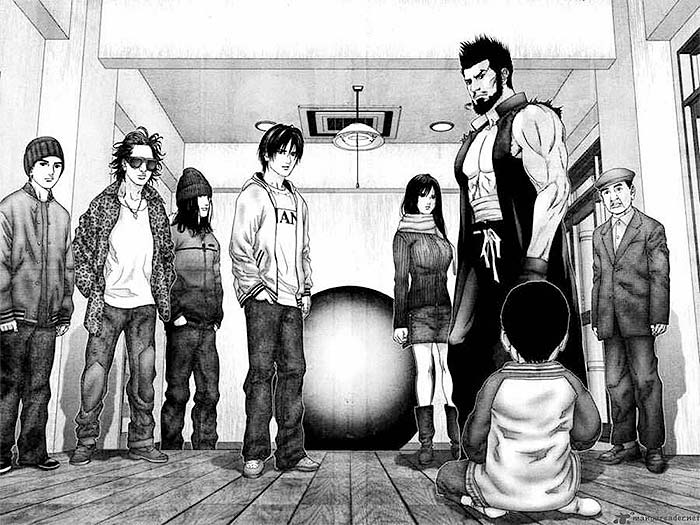
The theme of death is also deeply explored in the manga Gantz, although it takes a different course to inculde, as the title suggests, a survival game. Itis a manga created by Oku Hiroya and published between the years 2000 and 2013. It was adapted to an anime in 2004, which is why the manga is more significant than the anime in terms of plot. The story of Gantz revolves around dead people finding themselves in a room with a view on Tokyo tower. Inside the room, there is a black sphere with a screen displaying their mission. They have to conquer enemies who turned out to be aliens, and from that point onwards, their survival game begins.
Gantz approaches a different definition of death in that the characters are coerced to play a morbid game right after they died. The major idea is that humans are still fighting and evolving even after dying, which is evidently showcased through the character of Kurono Kei. At the beginning of the story, he is only having sexual desires and showing great interest in hot women. As the events unfold and the game gets more intensely grotesque leading to insane massacres, Kei learns that human existence is not solely based on sex and fooling around. He eventually realizes that love is the essence of existence after falling in love with Tae Kojima.
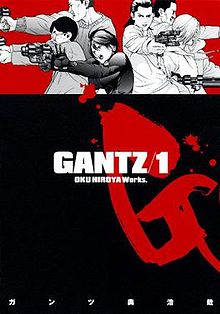
It is important to explain the rules of the game because they are not there just for show and they further hint at the characters’ personality. When earning 100 points, the players have three options: they can either choose to be revived while having their memories about Gantz wiped out, or they can have more powerful weapons and suit, or they can choose to revive a person who died in a mission. The final option was added when they advanced more in the missions. The author is clearly attempting to provoke us, as readers, to recognize how people make different choices and that reflects their nature as being evil or good.
As far as the concept of purgatory is concerned in Gantz, it is more of an open space, unlike the other previously mentioned anime. The players are in a specific area within the city of Tokyo, and after completing their mission, they are free to go back leading their normal everyday life. There is a link between life and death in this manga. Fighting aliens in the form of monsters is similar to challenging life’s hardships. For this reason, just like life can at some point get like a survival game, the author Hiroya Oku theorizes that death can also be the same in its own way.
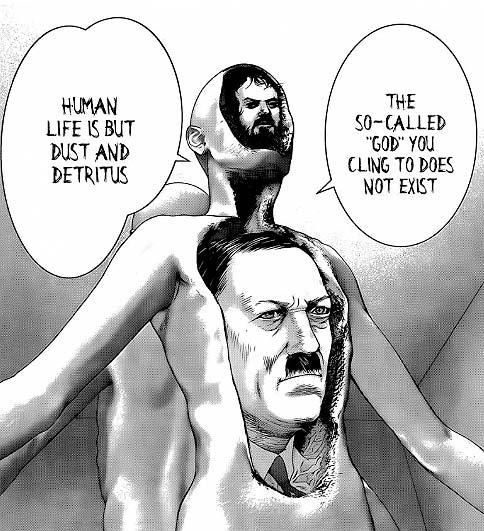
Another noteworthy concept pertaining to Gantz and the theme of death is the Room of Truth. In Angel beats, there was no answer whatsoever about the puzzling mystery of existence. Gantz, however, proposes a clue to what human existence originates from. As the players access a so-called Room of Truth, they can have absolute knowledge of anything they want to answer. The players asked who created them, and they were told that God does not exist and that their souls are data that could be destroyed and recreated. 5 It was proven by showing an experiment reviving the character Reika. This is an overwhelming scene that brought the players to tears because they could not grasp the reality of their origin. Realizing that no one is out there to lean on in difficult circumstances, like the ones they are undergoing, seems too challenging to accept. The coming section dealing with Cat Soup will delve deeper into this existential matter.
Cat Soup: Death Is An Existential Tragedy
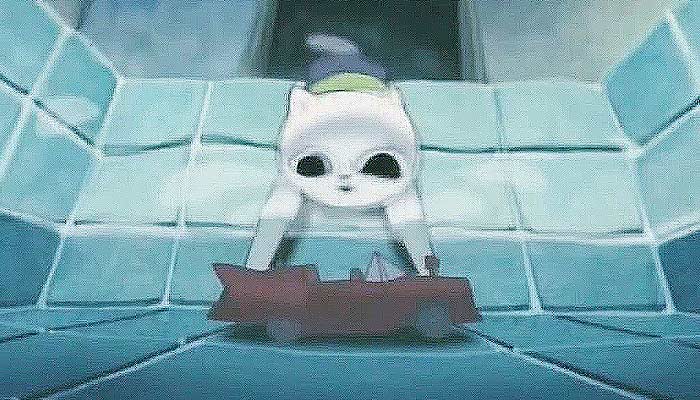
Cat soup deviates even further from the other anime in that it describes the event of death as merely an existential fact. It is a one-episode anime directed by Satou Tatsuo, and it is based on a manga by Chiyomi Hashiguchi. The characters of Cat Soup are cats, which makes the anime seem like a kids’ show, but it is far from that assumption. It is quite disturbing reminding the viewer of the harsh reality to not be able to do anything when a beloved person kicks the bucket. It tells the story of a cat brother named Nyako who desperately wants to save his younger sister Nyatta. She is very sick and seems to be at the end of her rope. Determined to save his sister’s soul, Nyako confronts Death and manages to recuperate half of her soul but she still looks lifeless. He, then, goes on a journey with her to fully resurrect her.
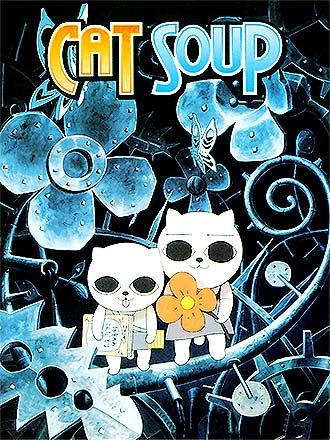
During the journey, Nyako and Nyatta stop at a circus to watch hideous performances played by God himself. He is shown as being able to manipulate anything, including time and creatures. And that is when Nyako succeeds at saving his sister, but that only brought utter chaos and disorder to the universe. 6 This evokes that if we had the power to resurrect the dead or to control any other natural order, it would only lead to disturbing the order of the universe.
As the title of this section suggests, Cat Soup defines death as simply the end of one’s life and that it is a cruel existential phenomenon. Life goes on no matter how close the person we lost is to us. This is perhaps what people like Menma’s mother from Ano Hana need to understand. It is undoubtedly difficult because not all parents lose their child by accident and not all people lose their younger siblings by illness, but it is what it is and there is nothing to do about it. That said, accepting the harsh reality by moving on in life to allow the deceased to live forever in the living’s memories is the only way forward.
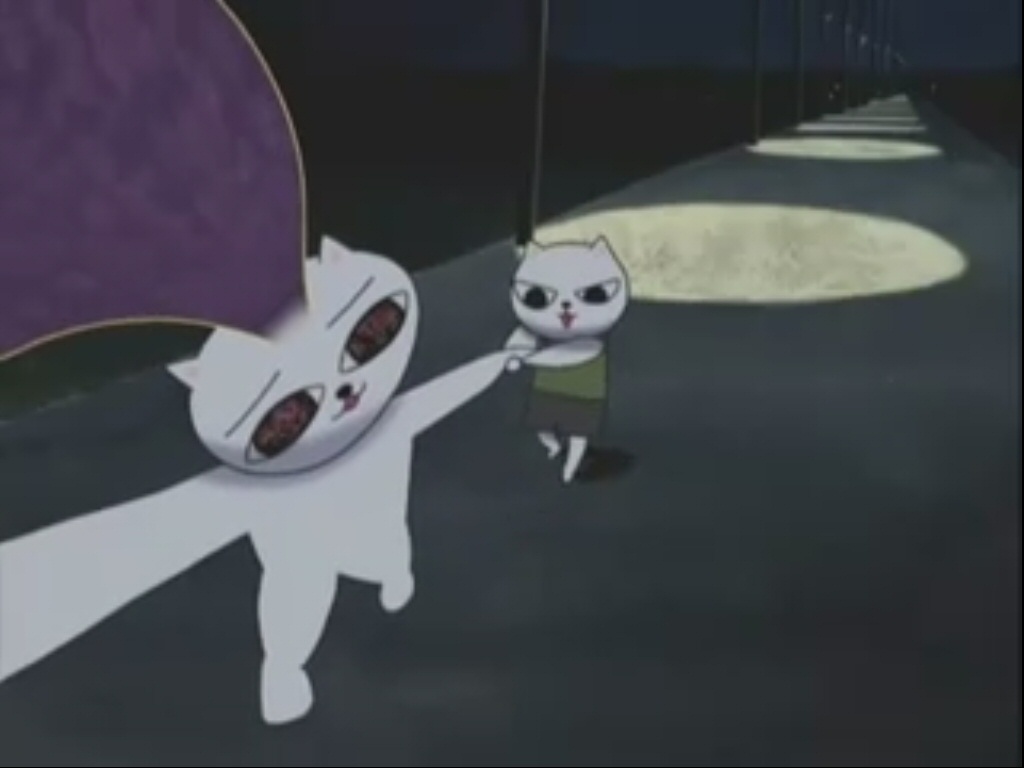
Last but not least, the notion of purgatoryis not clearly addressed in this show because it is rather set in a dream-like abode. It is heavily filled with bizarre scenes suggesting absurdist ideas about the world. It depicts the terrifying quest of Nyako to save his younger sister Nyatta. This is why the appalling reality of losing someone dear is well-portrayed in this anime. We can mention, in this context, the anime Ano Hana that addresses the issue of childhood death and how deeply and intensely the death of Menma affected her friends and family.
Discussion: What Is Death?
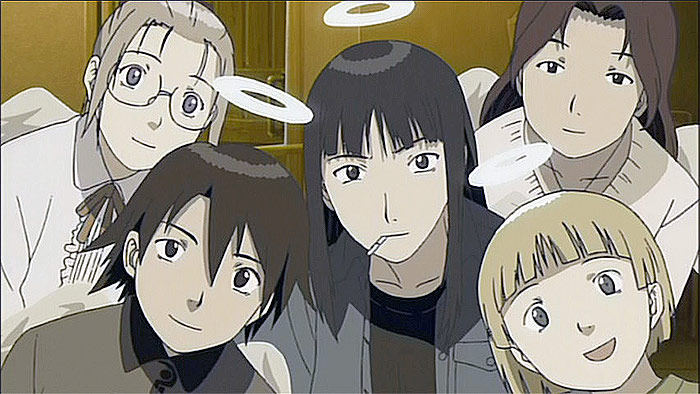
Despite the darkness of the shows, they seek to remind us that death does not necessarily mean the end and that we must be responsible for our deeds. Death is, therefore, a reminder that we should do our best to avoid committing wrongdoings as much as possible. This is the lesson we learn from Death Parade. We should think before acting because if we keep making the same mistakes, we won’t be able to evolve and transfer to the next world. Some people are blindly arrogant that they do not recognize they have committed a particular sin, this is why Haibane Renmei aims to show us that admitting this fact is already a sign of repentance that paves the ground for atonement.
According to Jeff Mason (2015), “one trouble with discussing this topic is the instinctive fear of death. We tend to avoid death in our thoughts and actions. However, if we could forget our fears for a minute, we could see more clearly how interesting the concept actually is from a more detached point of view.” 7 This is an intriguing statement in that it explains how our fear of death is normal as it is “instinctive,” yet if we defuse our mind from that fear to explore the idea of death, we would understand that it is thanks to its inevitability that life is meaningful. This is what the characters of Angel Beats realized when they finally departed to the mortal world after finding out the meaning of the lives they were given. We cannot pass to the next stage unless we learn the lesson and extract the significance of that lesson.
Mason (2015) also points out that: “for those who think death is real, death is a blank wall. For those who think it is not real, death is a door to another life.” The three series Haibane Renmei, Death Parade, and Angel Beats and the manga Gantz imply that death is not real and that it is a transition to another world. They all work to show that death is a process to understand the gravity of our misdemeanors through atonement, judgment, acceptance, or fighting. Cat Soup, on the other hand, is a portrayal of death as a merciless separation, so it is neither the end nor a new beginning.
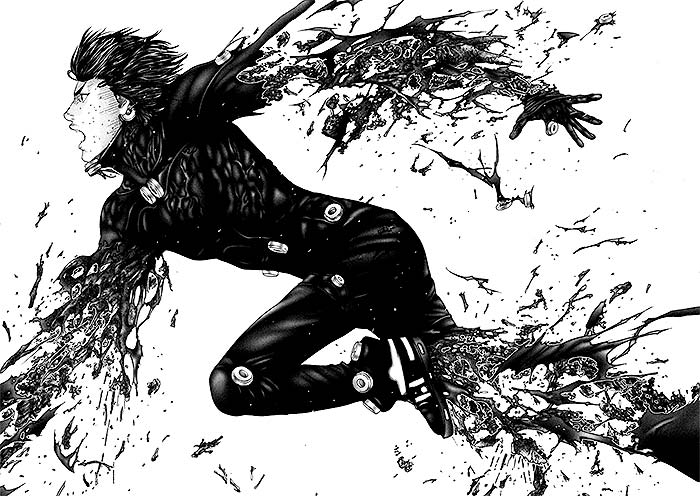
On a final note, death can be perceived as an amalgamation of all the aforementioned thematic dimensions. Atonement, judgement, acceptance, and fighting all require efforts to be made. Perhaps only Cat Soup directly focused on defining death as a tragedy, but the other works implicitly hint at the same definition. The notions of death in these shows are pieces that belong to the same puzzle. Just like life is viewed differently by each individual or a certain group of people, death remains a multilayered reality and mystery as well.
Works Cited
- https://myanimelist.net/featured/1551/More_than_Angels__Understanding_the_Symbolism_in_Haibane_Renmei_ ↩
- https://hanagasaitayo.wordpress.com/2017/06/10/critical-review-haibane-renmei/ ↩
- Eisenbeis, R. (2015). “Death Parade Is About Life, Death, and the Darkness of the Human Heart.” Retrieved from https://kotaku.com/death-parade-is-about-life-death-and-the-darkness-of-1705434868 ↩
- Eisenbeis, R. (2015). “Angel Beats: The Kotaku Anime Review.” Retrieved from Eisenbeis https://kotaku.com/angel-beats-the-kotaku-anime-review-1726324400 ↩
- https://hobbylark.com/fandoms/Gantz-Manga-Ending-Why ↩
- http://www.theanimereview.com/reviews/catsoup.html ↩
- Mason, J. (2015). “Death and Its Concept.” Retrieved from https://www.philosophersmag.com/opinion/17-death-and-its-concept ↩
What do you think? Leave a comment.


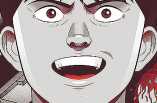
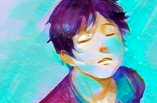
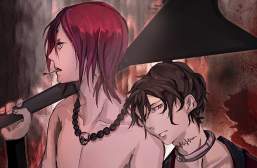
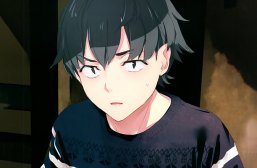
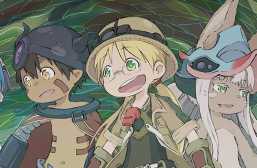
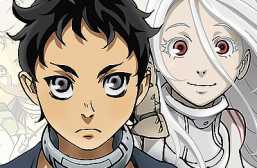
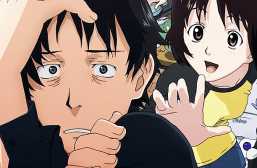
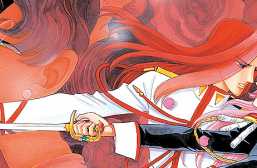
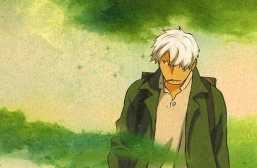
Rakka is one of my favorite characters. I really enjoyed her development throughout the series and getting to know her better in the middle. At first I thought she was just going to be a cheerful girl. I was surprised by how easily she broke down after Kuu left. It was difficult for her to cope with loss, even though the implications of Kuu leaving were something positive. It was at this point that I realized that Rakka only appeared happy but was the kind of person used to suffering. She killed herself because she thought she was worthless and those thoughts carried over to her rebirth as a Haibane. It wasn’t until she recalled her dream more clearly that she realized she wasn’t alone and that there was someone who cared about her. I loved seeing her overcome her inner demons and become the light that pulled Reki out of a similar darkness.
The story of Rakka also hit me hard when I found out she committed suicide. That is another significant event to show how sins can be repented if you turn your darkness into light.
Death Parade is one of the few anime I have seen that would make for an amazing live-action feature film. Don’t gt me wrong, I love 2D animation and feel that it is the best method to convey these types of stories, but as I watch each episode, I kept picturing the actors of a live action film and seeing practical effects make it a less intense version of Hellraiser. Everything about it is so damn original, in the sense that you are battling for your soul in the most mundane ways. The fact that each episode is like a self-contained story make it easy for anyone to pick up at any time and not be that lost.
I really enjoyed this series. The opening theme is hilariously incongruous and utterly catchy. My only real confusion about it was that the little faces above the elevators didn’t seem accurate in indicating where a soul was ultimately sent at the end of the episode. Therefore, it was sometimes unclear if a character got another shot at life or not. I felt like that denied me some closure, but I went through the Wiki for the show and filled in the blanks.
This show was such a damn treasure. Each reveal from beginning to end was handled so well. And when the theme song blasted out for the last time, it brought emotions out of me.
I loved that show. Some of those episodes… so emotional. Especially the finale. I mean, the whole thing with bud-head-guy (…name escapes me) was kind of… slightly confusing and left rather unfinished. But the black-haired woman’s story was wrapped up excellently, and some of those mini-stories in between—like the bowling one—man. That was such a great show.
It was amazingly intense and emotional and was probably one of the best I’ve seen in years.
Amazing article. The mystery is definitely one of my favorite points about Haibane Renmei. It makes the world feel so much more genuine, rather than a mere narrative created for the sake of the audience. The mystery of the afterlife is one that human beings have struggled with for as long as they have existed, so why should all the answers be plainly laid out for Rakka, Reki, and the rest of the haibane here? In a way, one of Haibane Renmei’s many themes is making peace with the fact that you will never have all the answers, and I think that that is a lesson that is very important to learn in life, even if it’s not one we want to hear.
Loved Haibane Renmei. So much symbolism.
It’s really sad when you realize Rakka and all of the other girls were suicides, and the town is Purgatory.
I love how it handled Rakka and Reki’s developments, and how both of their characters and their relationship changed slowly throughout the show. Their relationship at the same time gave us more hints about the world and its inhabitants. I could honestly go on forever about little things like these the show does that I love so much. I have to say episode 11 was a personal favorite, and my favorite character was probably Kana just for her personality, although everythig about Rakka was fantastic as well.
Reki and Rakka’s ‘arcs’ have some of the most emotional moments I’ve seen in anime, at least from those that didn’t rely on character deaths. We’ve all had some feelings of worthlessness in life, of abandonment, of being unable to be happy with ourselves. Seeing them openly deal with these problems–sometimes voicing their inner turmoil out loud in ways we can barely do ourselves–was just breathtakingly real.
I’ve just now finished watching Angel Beats for the 3rd time and cried the entirety of the show. This was one of the first anime I watched, 5-6 years ago. Back then I could hardly sleep the night I finished it because I was crying so hard. Ugh! I love this show so much!
Angel beats hit me so hard then the cliffhanger at the end when he found her
I watched this when it first came out and I’ve been waiting to this day for the next season and still nothing 😓 just re watched it. It was nostalgic sorta haha.
The sense of mystery and world-building in Haibane are unlike any anime I’ve ever seen. It’s fascinating to try to figure out the world as you go along, and beyond what eventually gets explained, there remains endless speculation about the nature of the Haibane system, town of Glie, etc. Definitely a theorist’s dream.
Death Parade was exceptional. Absolutely stunning animation and incredibly well-written. Would recommend to people who don’t have much experience with anime / newcomers. Some really deep philosophical discussions and each episode keeps you questioning what the ‘right’ decision is.
i love shows that just straight up punch me in the gut. with decim in particular i was intrigued by him from the second i saw him, and to follow his development was incredible.
Gantz is two stories to me. Both of which are enjoyable but for different reasons. And honestly dont tie together at all.
The early plot is very random and doesn’t really make sense. But the action and pacing plus sex and gore make it very highly rated. Personally I like it because underneath all the drama there’s great character development.
People don’t like the ending because it doesn’t actually continue with the early story. Theres just this sudden turn of events. But by then the characters are so well built that anything they have to go through is just gold, no matter how crazy. As its own story the end plot actually makes much much more sense Imo.
I recommend watching the anime it covers most of the best part of gantz, after this arc the manga start to fall in quality.
The final episode of Death Parade absolutely broke my heart. I will never be able to handle crying Decim.
Hearing Decim cry left me cold, the acting there isn’t comparable to Aoi Yuuki as Victorique in Gosick episode 22 (one of my favourite scenes in anime, truly), but seeing it, and the moments where he gasps, caught in his pain, caught in the understanding of the pain he caused? Definitely a shattering moment.
Haibane Renmei was a great series. I wasn’t sure what to expect other than a potentially sad story with lots of mystery. Given ABe’s involvement in both series, I can’t help but compare this with Serial Experiments Lain. While Lain was more about humanity’s future (or I guess it’s now present day) and how technology has become a normal part of life, Haibane Renmei focuses more on the nature side. Everything from the setting to the characters felt more traditional. Lain had all sorts of cryptic messages hidden under layers (no pun intended) of technobabble and the world felt so artificial. This series goes in the opposite direction and makes everything feel natural. One of the very first things we see in this series is the cocoon Rakka came out of and later in that same episode we see wings growing from her back. The characters also all act like any normal person would.
Both Serial Experiments Lain and Haibane Renmei have pretty atypical openings. Lain has her staring at you from the static noise, the “Present day. Present time.” bit, and a British song. And Haibane has a fully instrumental opening song.
Oh, man, I haven’t watched Haibane Renmei for a long time but one of the things that struck me when I did was how both Rakka and Reki actually reminded me a lot of myself. To this day I’m still not sure if that’s a good thing or a bad thing.
Above and beyond that, it seems like many of these anime are really driving at the same conclusion: namely, that one’s primary option in contemplating death is to accept whatever life they have, and not to go around wishing for something better, like a kindlier afterlife or an answer to life’s mysteries, that isn’t even be guaranteed to exist. It’s interesting to think about whether that’s simply the predominant view in Japanese culture.
Currently reading Gantz at the moment currently at chapter 356 and I gotta say its probably my favourite survival/battle manga.
The character interactions are very realistic and believeable. Really good plot twists that I never expected. Accompanied by amazing art for standard conversational scenes and battle/fighting scenes.
The only downside I can see for what I read so far is that the female characters are commodified as I feel they are just placed to move the main character forward.
Yeah I had a major problem with the way people are sexualized. It just looks like an excuse to pander to proon lovers.
The manga has really high points and really low points. Some developements will excite you really hard some will disappoint you to the point you want to drop it.
It’s my all time favourite manga. It has amazing character development, story line, and action. The art is aite at the beginning but also becomes amazing as the manga progresses. There’s so much content esp. symbolism, historical and modern issues. Definitely both entertaining and thought provoking. Despite what people say about the ending I thought it fit the manga perfectly.
I think Reika’s death in Gantz was beautiful. A final act of altruism in a series reek of cynicism and nihilism.
Her second death, though.
if you want to see where ABe got a lot of his ideas from, go check out a novel called Hard Boiled Wonderland and the End of the World by Haruki Murakami. You will clearly see the inspiration for Haibane Renmei, especially in the ‘End of the World’ segments. I found it very interesting!
I really liked it but the only thing really in common between them is the setting and certain aspects of that setting (the well [which is even more similar in Murakami’s Wind-up Bird Chronicle], the wall, the western woods, no memories, the gatekeeper was originally going to play a larger role in Haibane but he was dropped). Otherwise the stories go in completely different directions. You can definitely see the parallels in stories but they talk about drastically different things and I think ABe is much better at writing characters.
This was the third or possibly even fourth time i’ve watched Haibane Renmei and it’s remarkable how much it still affects me so strongly and my love for it just grows every single trip through. I love stories, i love them in many different media, lengths, styles, and formats and this one easily sits right there at the top with some of my all-time favorites.
I haven’t found the show dark. Yes, the theme of death is everywhere, but sad moments are always followed by happy moments. To me it is quite the opposite of those stories that look happy but are actually very grim once you look more closely at them: Haibane Renmei looks dark but is actually quite lighthearted.
I love how subtle Angel’s backstory is. They don’t directly show it, but leave little hints that are open to interpretation by the viewer. I would have liked a more fleshed out backstory for her, but ill take what i can get.
These shows make you realize humans don’t cherish life enough.
Angel Beats isn’t really about Death, Religion, or the Afterlife. One can even assume that it’s possible that the characters aren’t even really dead.
if you want to look at it as a psudo existence. but pretty sure they are dead, as that one chick had the actual medical problem.
Angel Beats is clearly about Death. The characters have memories of how they died and managed to reincarnate in the end. But since this is a matter of interpretation, what do you think it may be about?
I was 8 when I first watched Angel Beats (it was my first anime) and I remember crying my eyeballs out already in the Guild episode (even tho nothing tragic happens and it’s pure comedy). I stopped watching it but I recently finished it and my heart is shattered – this anime hits harder than a truck.
This anime is so special to me it was the first anime I’ve ever watched and I’m glad that it was the first anime that introduced me to anime.
i will scream if another season comes out, i finished it today and i was literally in tears, an anime has never made me cry this hard in awhile, tbh if there was a second season, i’d want to see them in the real world, see them meet up. Angel beats is probably one of my favorite anime’s ever
I love the cliffhanger. Just think about it. Maybe god gave him a change to be with angel do to the fact he knows he love her. His final happyness life. For the thanks to the work he had done for god. He works in many and oddly ways.
Angel beats is one of the best anime ever made, or will ever be made. Even with its faults in not hearing the other characters stories. Iwasawa? Yurippe? Kanade? and Even Otonashi. Then there’s the absolutely untouchable soundtrack and great animation style! 9 years on and it’ still the top of my list, only beat out by a show that isn’t exactly an anime.
I finished the Gantz manga twice and I feel empty each time. (I finished this a few years ago and again today)
Awesome article. Among the anime and manga referenced, I only know Angel Beats and Gantz. I’m for sure now going to check out the rest!
Angel Beats!, my favorite anime of all time!
I LOVED EVERY MOMENT OF IT the best song was my most precious monster by karuta from girls dead monster.i was surprised that girls dead monster is actually a band
Angel Beats was one of the first anime to hit me hard.
Yui’s arc in AB made me ugly cry for about 10 minutes. Yuri’s story also made me cry. The emotional moments paired with the music just makes it HIT that much harder.
Like every emotion of happy, sad, anger, calm and more just took over my body at the same time and then cried.
I absolutely LOVED the pacing of Haibane Renmei! Every single episode revealed a little bit more of the mystery and kept you hooked. And by the end, while it didn’t throw any concrete answers in your face, you pretty much understood the big picture and it left me very satisfied.
This is a very intriguing article. I enjoyed how you thoroughly analyzed each anime and manga. It’s interesting to see the different beliefs of death and the afterlife, and how each show reflects these different worldviews. Thank you for sharing this with us!
I’m glad you enjoyed it!
One of my favorite anime is Haibane Renmei
There’s a fluidity in anime that allows for exploration than fear of death, as you’ve stated. I’ve only watched Death Parade and Angel Beats, but it’s definitely a theme that can be interpreted with diverse and seemingly infinite narratives.
Till a few people in my special interest group repeatedly recommended that I must give animes a shot, I was of the very wrong opinion that these are just cartoons and thus, I have outgrown them. Though I have occasionally heard some very negative points about animes, I did watch a few and ended up admiring the complexity of the stories. Loved the article and the topic selection. Cheers!!!
I’m glad you gave anime a try! and thank you for your comment!
Death Note would be a great one to discuss! you get the moral questions of is what light doing right or wrong because hes killing seemingly “bad” people at first, but slowly he becomes somebody killing just because he can.